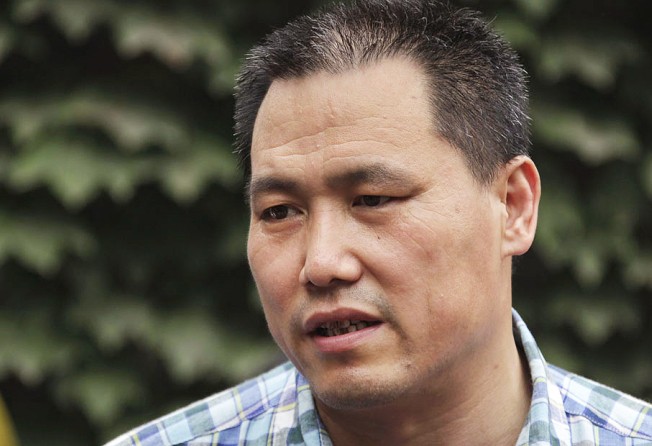Lawyers slam draft code to muzzle those who publicise cases online
Proposed restriction on mainland lawyers is a blow to advocates who use social media to publicise cases that embarrass party

Enraged mainland lawyers have spoken up against a new code that the national bar association is drafting to restrict what they can say online.
The code, proposed by the state-run All China Lawyers Association, urges lawyers to exercise extreme caution when commenting about cases on the internet and bans them from revealing case information before court rulings.
The draft rules stipulate that lawyers cannot make “misleading” comments, issue open letters or incite demonstrations to pressure courts or judges to review decisions.
Article 85 of the code states: “To avoid affecting judicial authorities, lawyers shall not call on or cooperate with others to generate media blitz or put pressure on cases they are involved in. Lawyers are also not allowed to organise or participate in online activities to gather together, watch and show support.”
The association “may start punishing lawyers for any online misbehaviour” including criticising the state’s legal and political system as well as the Communist Party’s policies, the Global Times reported on Wednesday. Offenders could receive wide-ranging penalties, from internal warnings to expulsion from the association, the draft stated.
An association spokesman confirmed that such a proposal was being considered, but would not give details.
Critics say the proposal amounts to a gag order stopping lawyers from publicising controversial cases and miscarriages of justice. The draft rules are a violation of freedom of speech and a regression in the state legal system’s push for transparency, the lawyers say.
Lawyer Zhang Lei, who has urged his counterparts to unite to depose the association president over the proposal, said the draft code had shocked him.
“It is a regulation that is clearly against freedom of speech … As a member of the association, I think the president should take responsibility and resign,” Zhang told the South China Morning Post. “The draft ignores the reality and blames lawyers for judicial injustice. In fact, lawyers take advantage of the internet only to protect rights and call for justice.”
A Beijing-based lawyer who has reviewed the draft said: “I think this is a great insult to the Chinese lawyer community, and it is absolutely unacceptable.”
The Global Times report said many lawyers took to Weibo to express their views. “Many lawyers wrote on their Weibo accounts that they should be regulated by laws rather than the association, which should protect lawyers’ rights rather than restrict them,” it said.
The proposal is seen as part of efforts to rein in outspoken rights lawyers who use social media and other online platforms to publicise cases that could embarrass the Communist Party.
Lawyers have increasingly challenged the state’s legal system by exposing injustices ranging from undue interference by government officials to barring lawyers from meeting detained defendants. And the authorities have responded by stepping up pressure on freedom of speech and on the small band of rights lawyers and campaigners in recent months.
“The draft is set to disarm the rights lawyers,” said Beijing lawyer Zhu Xiaoding, saying social media was for rights lawyers what weapons were for soldiers.
Prominent lawyer Pu Zhiqiang was recently arrested after an online campaign to abolish labour camps.
“Resistance [to greater transparency in the legal system] lies with certain people who violate the law, such as those who use torture to extract confessions or commit obvious miscarriages of justice. They fear exposure,” said Wang Cailiang, a lawyer and deputy director of the administrative law committee under the bar association. “So there are certain forces that have been egging on the lawyers’ association to issue regulations to ban lawyers from partaking in such exposures.”
“This is very clearly targeted at suppressing ‘fight to the end’ lawyers as the restrictions are all about the methods they commonly use. If these methods are abolished, they will not be able to do much,” said another Beijing-based lawyer who spoke on condition of anonymity. Lawyers who fight judicial injustice have been dubbed “fight to the end” lawyers by the public.
Unlike many countries where the public can easily attend public hearings, mainland authorities strictly control trials. In many cases, those allowed in are carefully selected, while the media are excluded.
“The country is calling for a judicial opening up – what the lawyers’ association has done ignores the general direction,” Wang said.
While the authorities were placing restrictions on lawyers, he said, courts and other judicial organs were putting more details online.
A court in Shandong provided detailed transcripts during the trial of disgraced party leader Bo Xilai .
In the case of Liu Han, a tycoon who was sentenced to death in May, the police revealed extensive details of the case to the state broadcaster.